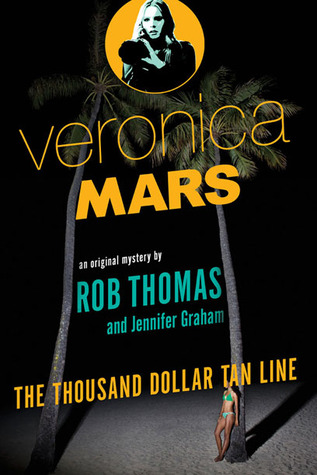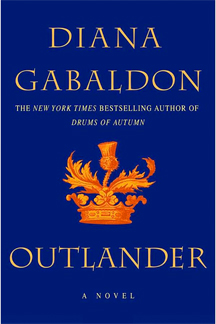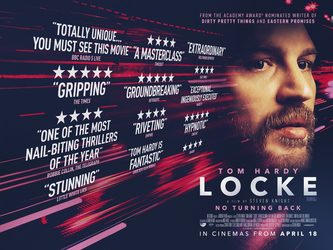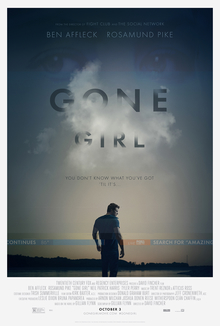A few weeks ago, I noticed several articles on Twitter talking about the seventh episode of Outlander. Airing on the Starz channel and based on a series of
novels by Diana Gabaldon, this show was not on my radar. However, when the Twitterverse explodes, I listen. So I took the plunge, and eight episodes later, I have emerged in awe of the cast and creators of this show.
Outlander is the story of Claire Beauchamp Randall (Caitriona Balfe) an Englishwoman who served as a nurse in World War II. The war has just ended and she is reunited with her beloved husband, Frank (Tobias Menzies). They go to the Scottish Highlands for a second honeymoon and are having a wonderful romantic time. But one day, she wanders off by herself in a mystical spot, and is suddenly transported back to 18th century Scotland in the midst of a civil war. Bewildered and afraid, Claire slowly pieces together what has happened and her only hope is to return to the spot where she first traveled back in time. Unfortunately, events force her to run for her life and take up with a band of Scottish soldiers, who are mystified to find a strange Englishwoman running around the countryside. Thanks to her nursing background, she proves adept at healing them of their wounds, and though they still suspect her to be a English spy, they are grateful for her expertise.
One of those Scots is a handsome outlaw, Jamie (Sam Heughan). While his clansmen protect him out of a sense of duty, he is on the fringes of society due to the English having put a price on his head and he can bond with Claire over their shared sense of isolation. He becomes her friend and protector, and in the aforementioned seventh episode, he is forced to become her husband. I cannot write articulate paragraphs about why that episode was so special - other writers have done so brilliantly, discussing the clear value of it being written and directed by women who knew just how to make "The Wedding" such a spectacular hour of television. And in fact, all of Outlander is a brilliant piece of woman-centered television, telling the story from the viewpoint of its strong female lead and giving her a great deal more agency and wit than we ever get to see in these kinds of historical or fantasy sagas. Claire is surrounded by Scottish men, but she always holds her own and earns their grudging respect and admiration. The show features a great deal of Gaelic that is not subtitled - this can be disconcerting, but is meant to put the audience in Claire's shoes and empathize with her frustration as these men talk about her and decide on her fate. Claire's voiceovers drive the narrative and tell you what to think and feel at any given moment, and the show is all the better for it.
You should also watch Outlander for its sheer beauty. Shot in the wilds of the Scottish Highlands, each scene is achingly gorgeous and otherworldly. The music is soulful and stirring: just listening to the title song at the beginning of every episode transports you right into this world. The sets and costumes are all recreated with marvelous attention to detail, and the actors are committed to telling a wild and sweeping story of war, romance, and tragedy. The Scottish actors, particularly Sam Heughan and Graham McTavish, are fantastic, bringing such depth of feeling to their roles and sharing interesting dynamics with each other and Claire. Tobias Menzies has a wickedly difficult stunt to pull off as he plays Claire's adoring husband in 1945 England, but his psychopathic English ancestor, "Black Jack" Randall in 1743 Scotland. And Caitriona Balfe is a fearless marvel, diving headlong into every scene with courage and wit, daring the men around her to keep up. She allows Claire to be strong and vulnerable, intelligent and bewildered, funny and frustrated. And of course, this is thanks to the showrunners and writers, who are delivering powerful scripts every week that give these characters room to breathe and fully develop into complex human beings.
The first eight episodes of Outlander have already aired and the next eight will air in April. Given the richness and sheer joy of watching this series, it is perfect to binge watch in one go rather than having to wait for weekly installments. But I warn you, the final episode does end with a cliffhanger that is already making me pine for April. Thankfully, there are a stack of novels I can read in the meantime.
 Chef is food porn masquerading as a movie. If you like multiple scenes of food being lovingly prepared or are very keen on learning how food trucks operate, this is the movie for you. If not, there really isn't a whole lot left for you to sink your teeth into.
Chef is food porn masquerading as a movie. If you like multiple scenes of food being lovingly prepared or are very keen on learning how food trucks operate, this is the movie for you. If not, there really isn't a whole lot left for you to sink your teeth into.








